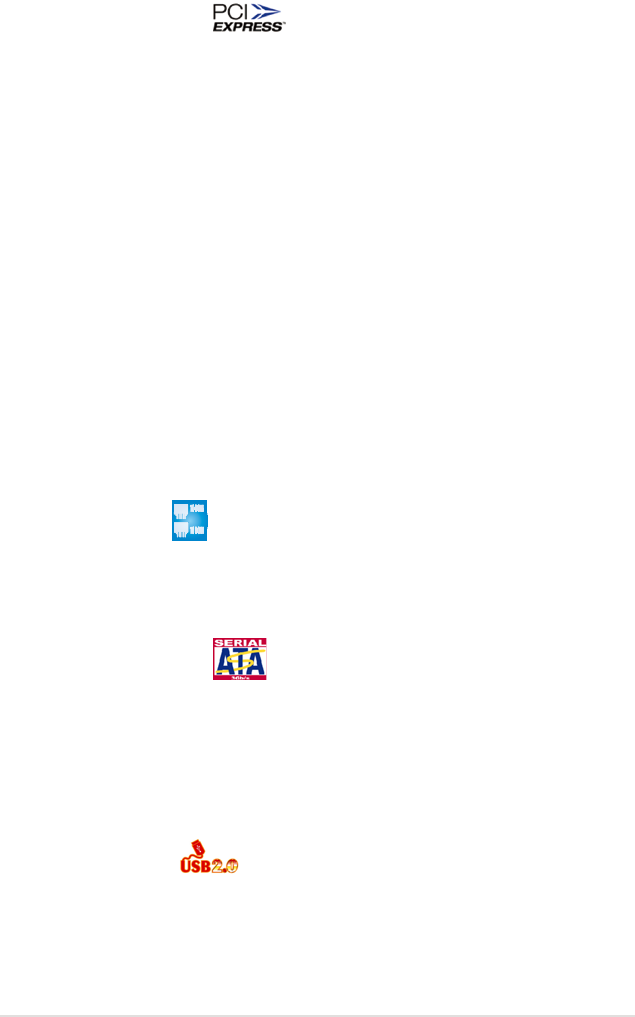
ASUS DSBV-DX Series 1-3
PCI Express™ interface
The motherboard fully supports PCI Express, the latest I/O interconnect technology
that speeds up the PCI bus. PCI Express features point-to-point serial
interconnections between devices and allows higher clockspeeds by carrying data
in packets. This high speed interface is software compatible with existing PCI or
PCI-X specications. See page 2-27 for details.
Serial Attached SCSI (SAS) technology support
(DSBV-DX/SAS model only)
SAS is the latest storage interface for enterprise-class storage devices. Building
on and improving the parallel SCSI foundation, SAS is the new industry standard
that includes Serial ATA interoperability, and is projected to be the succesor of the
Ultra320 SCSI technology. See page 2-36 for the location of the SAS connectors.
Zero-Channel RAID (ZCR) solution
(DSBV-DX/SAS model only)
The motherboard comes with a ZCR socket for an optional Zero-Channel RAID
card, allowing RAID 0 (striping), RAID 1 (mirroring), RAID 0+1, and RAID 5
congurations. The ZCR capability provides a cost-effective high-performance and
added reliability.
82563 LAN solution
The motherboard comes with a dual-port 82563EB network connection to provide a
total solution for your networking needs. See page 2-33 for the location of the LAN
ports. See section
2.6 Jumpers
for details on Gigabit LAN settings.
Serial ATA II technology
The motherboard supports the Serial ATA II 3 Gb/s technology through 6321ESB
Serial ATA interfaces. The Serial ATA II specication provides twice the bandwidth
of the current Serial ATA products with a host of new features, including Native
Command Queuing (NCQ), Power Management (PM) Implementation Algorithm,
and Hot Swap. Serial ATA allows thinner, more exible cables with lower pin count
and reduced voltage requirements. See page 2-35 for details.
USB 2.0 technology
The motherboard implements the Universal Serial Bus (USB) 2.0 specication,
dramatically increasing the connection speed from the 12 Mbps bandwidth on USB
1.1 to a fast 480 Mbps on USB 2.0. USB 2.0 is backward compatible with USB 1.1.
See pages 2-33 for details.


















